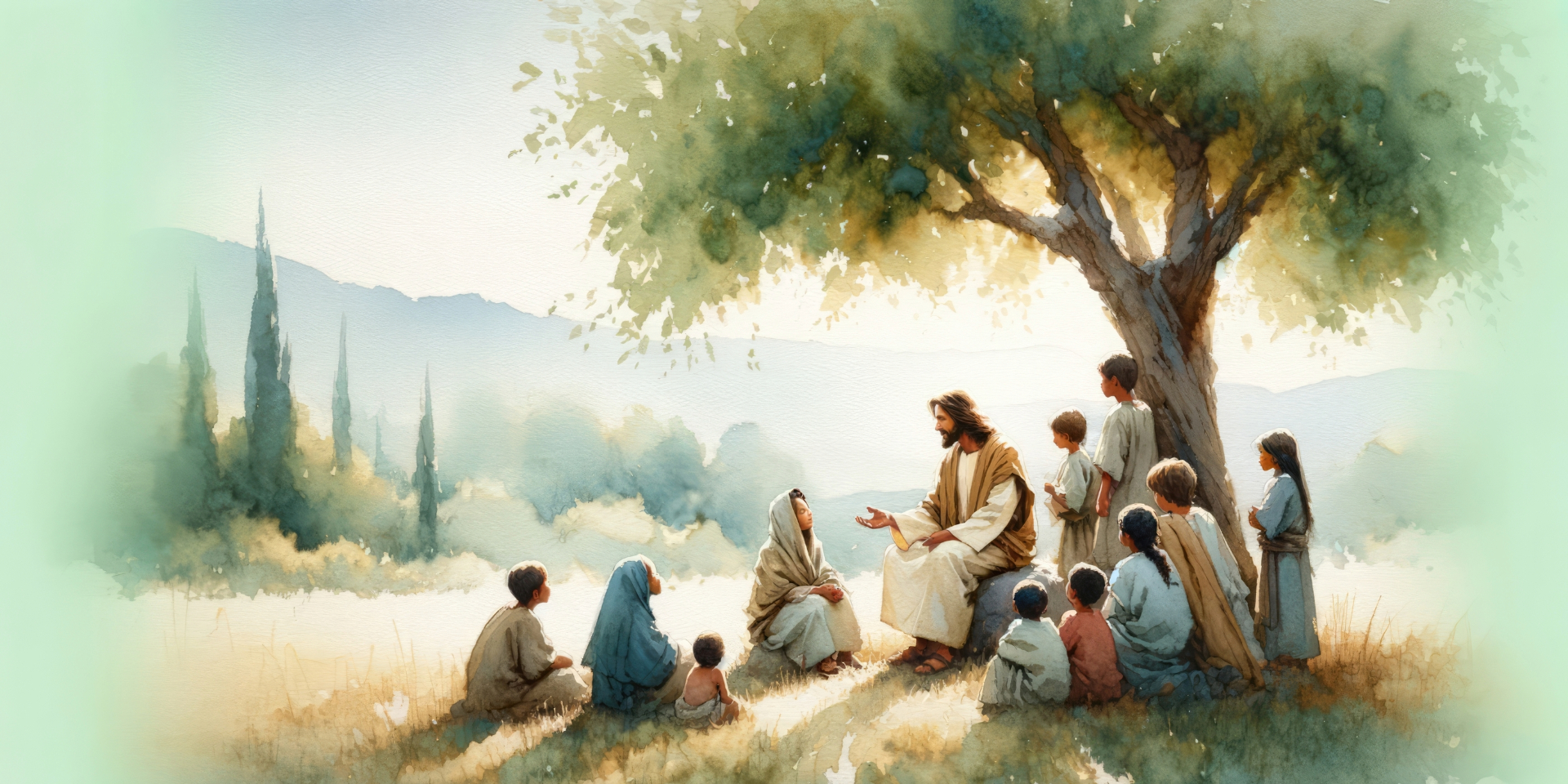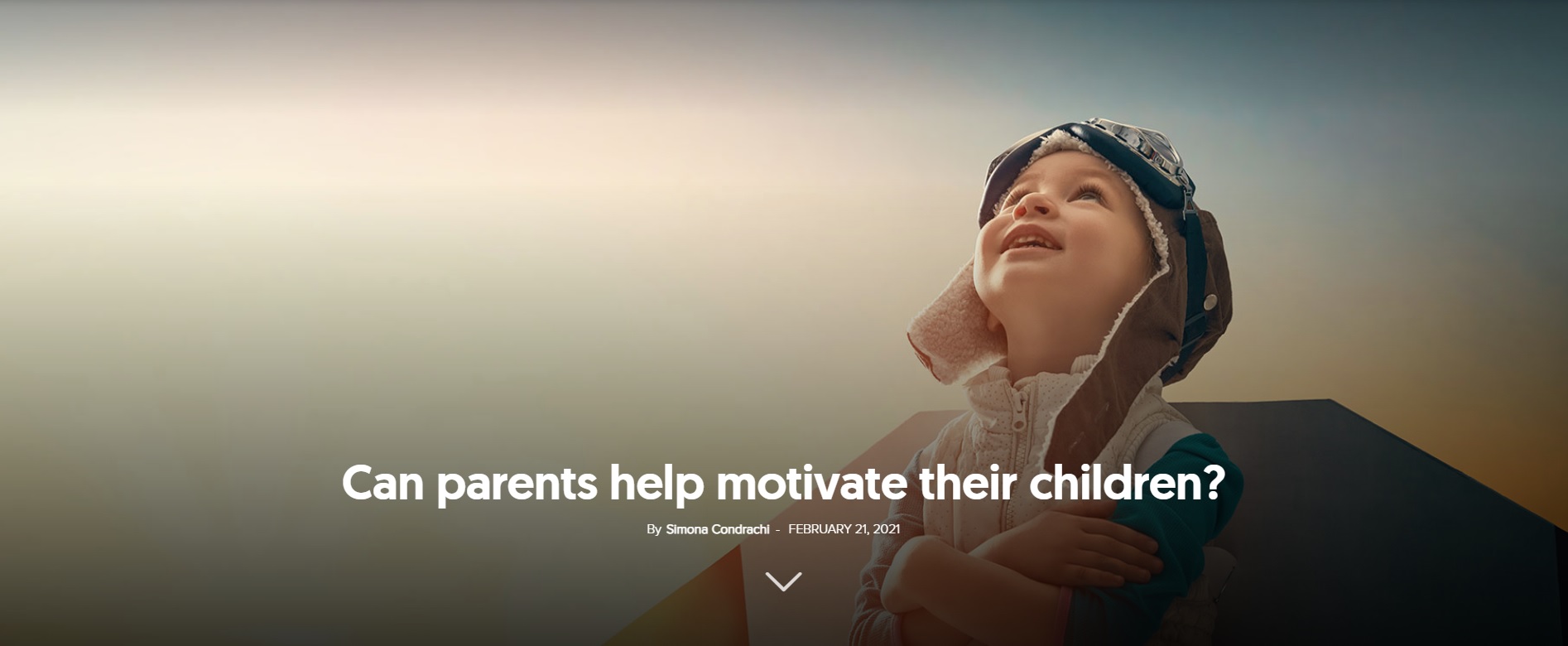The relationship between a parent and their child is one of the most significant in their lives, with its primary role being education.
If an artist creates, a musician composes, and a sculptor sculpts, then a parent embodies all three, but in a unique way. A parent merges these roles into a distinct triad, because it is their responsibility to not only ensure their survival but to pass on values across generations, instil essential principles and knowledge, shape the child’s value system, nurture their self-awareness, develop their language, and safeguard their health.
The marginalisation of childhood
A superior attitude held by parents toward their children has led to expressions that belittle childhood and children: “Don’t be a child! Stop being childish! You think like a kid!” By condemning what we no longer understand, we often lose sight of the essentials: to grow, to laugh, to believe, to forgive, to love, to be curious, to create, to enjoy life, and to live in the present.
Jesus Himself tells us in Scripture: “Truly I tell you, unless you change and become like little children, you will never enter the kingdom of heaven” (Matthew 18:3). Another moment where Jesus speaks of children is when His disciples, trying to keep them away from Him and what they deemed more “important,” not “childish” matters, hear His voice saying: “Let the little children come to me, and do not hinder them, for the kingdom of God belongs to such as these. Truly I tell you, anyone who will not receive the kingdom of God like a little child will never enter it” (Luke 18:16-17). Become like little children, or remain outside the Kingdom of God. This is a radical, strange, and difficult-to-grasp statement. Who educates whom? Who needs whom: children need their parents, or the other way around?
Mutual learning in the parent-child relationship
The relationship between parent and child is a continuous process of mutual learning. On one side, children are taught to walk, talk, develop social skills, resolve conflicts, distinguish right from wrong, and practice politeness, among other things. On the other side, parents learn transparency, sincerity, purity, authenticity, trust, humility, curiosity, how to live in the present, to forgive, to be creative, and to find joy.
While all of these traits are qualities of a heavenly citizen, the one that stands out—highlighted by Jesus in His comparison to little children, and presented as a condition for entering the Kingdom of God—is humility. The context of Jesus’s words, urging His disciples to become like children, is one of pride, selfishness, and the desire to be greater than others. Seeing what was in their hearts and hearing their words, Jesus calls children to Him to teach His disciples a lesson—the lesson of purity and humble living.
God: a child at his mother’s breast
The beauty of the religion Christ established lies in its portrayal of God as a child at His mother’s breast. Christianity is the only faith where the Creator serves the creation and where God descends into the very nature that depends on Him. There is no greater humility than for the one who holds life within Himself to become a being dependent not only on God the Father but also on His earthly parents and the community into which He chose to enter.
We become living beings through birth, but we become truly human through education—an act that requires external intervention. A person becomes self-aware and begins to shape their value system through the sum of beliefs and values within the context they are raised. The God Jesus Christ—who was taught by His mother to walk, to stop sucking His thumb, to wash His hands before meals, to be polite, to pray unceasingly, and to study the Scriptures—embodies the ultimate example of God emptying Himself of His divine nature and displaying perfect humility. Jesus needed God the Father, angels, humans, and the community around Him to triumph in the battle against sin. The secret of Jesus’s sinless life on Earth lay in His absolute dependence on God the Father, a dependence shown through constant prayer, petitions, and thanksgiving. If Jesus Himself needed help, how much more do we need it as beings burdened with weakness and sin?
God’s collaboration with humanity
God’s collaboration with humanity to restore the lost image and likeness required a profound act—one in which God “risked” His eternity by becoming one of us. This union of divine and human natures is evident in all of God’s essential works. The Bible was born through a collaboration between the divine and the human. Sanctification is a process of cooperation between the divine and the human, and the spreading of the Gospel to the ends of the earth is likewise a partnership between God and humanity.
Descent is ascent
For us to be lifted up, He had to descend, yet even in exaltation—His or ours—there is a descent into humility. “Rather, he made himself nothing by taking the very nature of a servant, being made in human likeness. And being found in appearance as a man, he humbled himself by becoming obedient to death—even death on a cross! Therefore God exalted him to the highest place and gave him the name that is above every name, that at the name of Jesus every knee should bow, in heaven and on earth and under the earth, and every tongue acknowledge that Jesus Christ is Lord, to the glory of God the Father” (Philippians 2:7-11). From a biblical perspective, to ascend is to descend, and to descend is to ascend.
Harder than giving is receiving
Only when we become aware of our inability to love, to grow, or even to live in our own strength alone, will we gain access to the Kingdom of God. We need help—both from God and from each other. It is often harder to ask for and receive help than it is to give it. Generosity can sometimes be a mask for pride and the desire for superiority. We feel the need to help others in order to feel important and above them. But even though kindness and altruism can reflect a certain moral high ground, deeds done for our own self-satisfaction carry no true value.
God Himself asked for help from His mother, upon whom His very existence as a child depended. If His mother hadn’t been a devout believer—if Mary hadn’t fed Him, clothed Him, and protected Him from danger—we wouldn’t be speaking of Jesus today. Through the miracle of His descent into the arms of His mother as a child, God perfects the essence of humility.
The humility of a child through dependency
While it’s true that a child often clings to things for themselves and may take a toy from a friend, this isn’t just a reflection of a sinful human nature, but also of how a child grows and survives.
Children learn by example. By being nourished with love, they learn to love, and this understanding of love grows in direct proportion to their sense of self and the love they receive from their parents. In receiving, they learn to give, and their self-centred behaviours should be understood as survival mechanisms. Just as there are no “bad” children—only unhappy ones or those with unmet needs—we cannot speak of pride in a child. A child does not yet have a fully formed sense of self, nor do they hold grudges or plot harm. They do not wish to burden their mother. They simply learn about themselves and the world through natural growth processes supported by these survival instincts.
A child’s self-love is not selfishness or pride, but rather the foundation upon which we all learn to love. As Jesus Himself said, “love your neighbour as yourself” (Matthew 19:19).
For adults, self-love often equates to pride and selfishness—the pursuit of our own good at the expense of others, or the benefits we seek that elevate us above those around us. Children make mistakes too, but in a different way. Let us not fear mistakes, but rather fear making them like adults do. Children may wrong each other, but they forgive and don’t keep a tally of offences. They get upset with one another, yet continue to play together. We should learn to forgive like children, to give like children, to forget like children, to love like children, to overlook faults like children, to refrain from judging others as children do, and to believe with the same purity and trust as they do.
Free from the chains of pride, children are detached from the past, fully embracing the present as if the future holds no threat. That’s why they laugh, find joy, forget, forgive, and love with such ease.
The mistake is not the problem
The Bible passage in which God appears to encourage “cheap grace” is addressed to “dear children”: “My dear children, I write this to you so that you will not sin. But if anybody does sin, we have an advocate with the Father—Jesus Christ, the Righteous One” (1 John 2:1). Only from the posture of a child can we find forgiveness and healing. The mistake itself is not as dangerous as pride. In a society where independence is a virtue and no one wants to depend on anyone else, God teaches us to value community and recognise how much of ourselves is found in others, and how deeply we need help. I cannot exist without the other, and the other cannot exist without me.
I will tell God everything!
While children are given to us so we can teach them what is necessary to know the world and God, when we attempt to explain life and how God works to them, it sometimes feels as though they’ve already met Him. Their purity and simplicity often distil life’s fundamental truths into profound insights. What else can you conclude when a child says things like: “Who does God listen to when one person prays for rain and another prays for sunshine?” “Who takes care of You, Lord?” “Please take care of Yourself, God, because if something happens to You, who will take care of us?”
During a war, a three-year-old child, covered in blood and mud on a hospital bed, cried out with the last of his strength: “I’m going to tell God everything!” Despite the pain, the atrocities he witnessed, the hunger he endured, and the world crumbling into a wasteland around him, that three-year-old did not doubt God. He doubted the world—a world that included him.
This is the power of humility: to doubt yourself but trust in God, even in the most absurd and painful moments of life. We need help. We need each other. And, most importantly, we need God.
Ștefăniţă Poenariu is the co-host of the show Education 360°, a sociologist, a PhD candidate in Educational Sciences at Montemorelos University in Mexico, a pastor-chaplain with the AMiCUS student association, and a professor of critical and creative thinking.




















